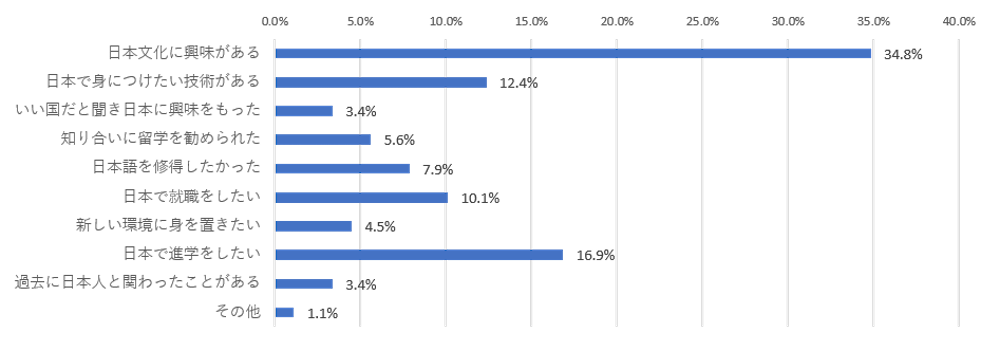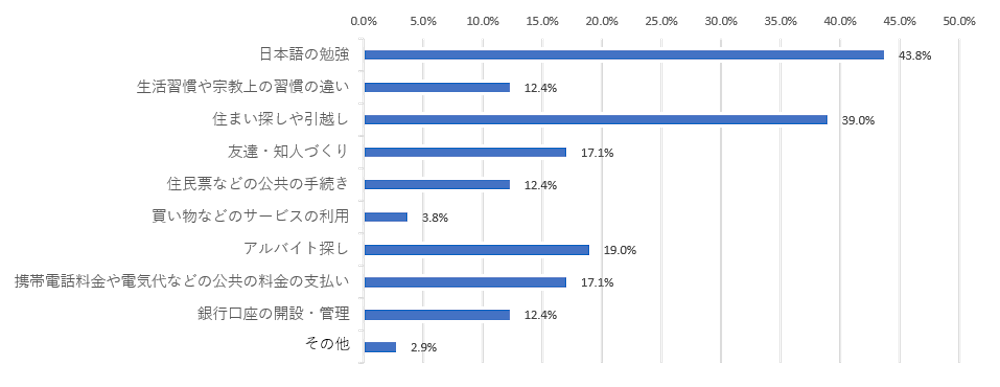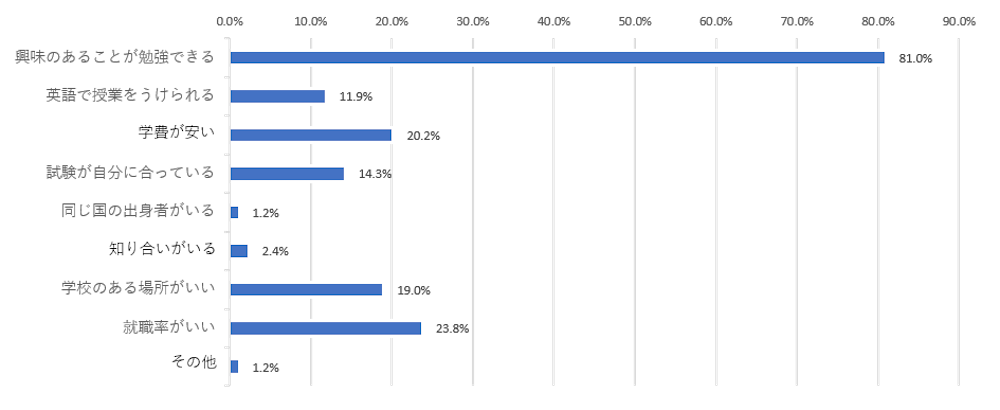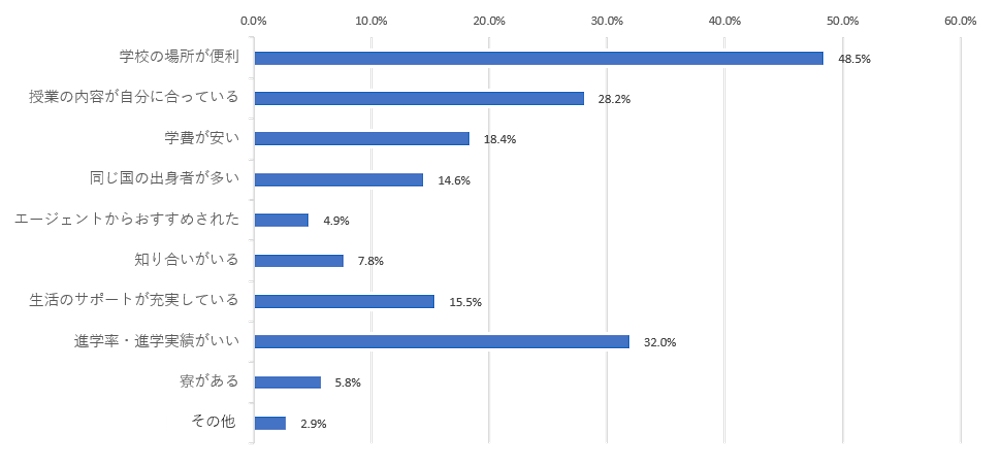On December 25th, 2018, the company Access Lead, which develops public relations projects for schools, published the results of a survey targeting foreign students in Japan. The survey was about what compelled foreign students to choose to study in Japan.
First, regarding students’ reasons for wanting to study in Japan, the most common answer was “interest in Japanese culture” at 34.8 percent. Many respondents were fans of anime and manga, and combining the answers “interest in Japanese culture” and “Japan has the kinds of schools I want to attend,” the survey results show that 67.7% are those hoping to attend vocational school in Japan.
 【Reasons for Wanting to Study in Japan】
【Reasons for Wanting to Study in Japan】The next most common answer was “I want to go to university or vocational school in Japan.”73.3% of respondents who answered this way were Chinese. Furthermore, when combining those who answered “I want to go to university or vocational school in Japan” with respondents from China, the survey shows that 63.3% of respondents who answered this way hoped to go to graduate school. On the other hand, looking at the answer “I want to work in Japan” and the number of respondents from China, only 4% of Chinese respondents answered that they want to work in Japan, reflecting the fact that many Chinese students want to return home after graduation.
When asked about things that bother them about life in Japan, many responded learning Japanese, along with the unique Japanese system of apartment deposits such as shikikin (regular deposit) and reikin (gift money). Complicated procedures for finding an apartment and moving, such as contracts and renewals for electricity and other utilities, were also considered an issue. As for reasons for choosing their Japanese language institute, many responded that “having a friend there” was important, citing that they could ask these friends for advice on places to live, or even become roommates.
 【Difficulties of Life in Japan】
【Difficulties of Life in Japan】Men and women gave different answers regarding their difficulties in Japan. In their daily lives, only men seemed to have troubles with shopping and part time jobs when communication with Japanese people was required – 3.8% of men answered as such, whereas 0% of women surveyed did.
The survey also asked participants what was important when choosing to take a school’s entrance exam for acceptance. Most responded that “course content” was the most important, with many also placing importance on the characteristics of the region a school is located in. 16.7% of Chinese students (Japan’s biggest foreign student population) responded that “being able to study things that interest me” followed by “employment rate of graduation” were important. This shows that rather than the initial examination and acceptance stage, Chinese respondents placed more importance on their prospects after graduation when choosing a school. In addition, for students from countries outside of the Sinosphere such as Nepal, Vietnam, and Mongolia, “being able to take English classes” was important.
 【Things Important When Choosing a School (University or Vocational School) to Apply for】
【Things Important When Choosing a School (University or Vocational School) to Apply for】Finally, when asked why they chose the Japanese language institute they’re currently attending, most respondents answered “convenient location” at 48.5%. When broken down by region, 35.% of East Asian students responded that “the course contents suit me” at 35.2%,with 38.0% responding that “the rate of acceptance and the acceptance results are good.” Besides location, high class quality and other substantial factors were important.
 【Reasons for Choosing Current Japanese Language Institute】
【Reasons for Choosing Current Japanese Language Institute】When looking at the answers of only Chinese respondents, most of them answered that “the rate of acceptance and acceptance results are good” at 41.3%. South Asian students answered “a lot of people from my country are there” at 25.0% and “I have friends there” at 12.5%. Central Asian students responded “I have friends there” at 50%. Students from regions with few students in Japan answered that they liked schools that have a lot of people from their province, because they could easily get advice regarding life and school acceptance in Japan among other things.
This survey, targeting foreign students registered for Japanese language institutes and other organizations which help prepare for entering a university or vocational school, was conducted from February to October of 2018.
Based on the tendencies revealed in these survey results, schools can carefully consider how to appeal to potential students more – by thinking about their strong points and other characteristics. By doing so, they can expect to more easily match with foreign students hoping to attend higher education in Japan.



















